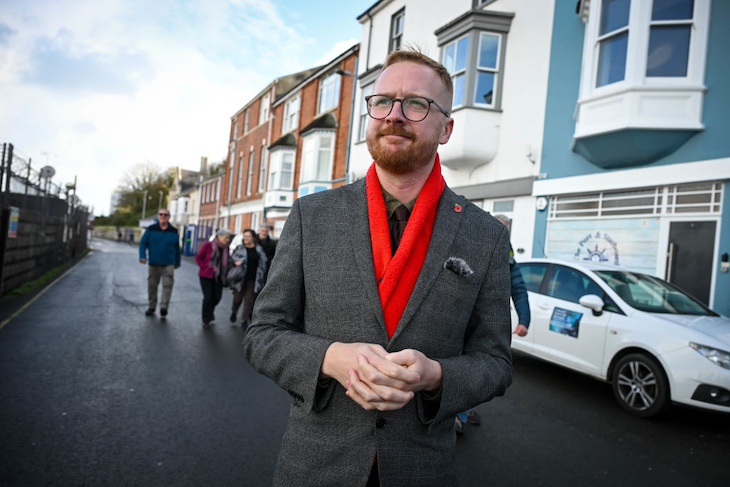
Having been made redundant from a job in the City, I could have afforded not to sign on at all. But since my P45 showed I had paid well over £40,000 in income tax last year, I didn’t feel desperately guilty about clawing back £90 a week in New Style Jobseeker’s Allowance. I didn’t know how long I would remain unemployed. Plus I wanted to protect my national insurance to keep my entitlement to the state pension.
The chaos started almost immediately. I registered online in early February and was told to await a date for my ‘assessment interview’. Instead, a month later, a letter arrived to say I had missed my appointment and to ring the helpline to rearrange. The number at the top of the letter? Tel: 0000 000 0000. I found the right number and sat on hold for 30 minutes, before a succession of frazzled-sounding people found a new date. Which, a couple of days later, was changed again.
Finally, in mid-March, I made my way to my local Jobcentre Plus in south-west London. Staff were everywhere, mostly chatting at their desks or milling about, vastly outnumbering the public. There was no urgency. It was soothing and I liked it. In my old job there was always someone marching up and down or stabbing at a keyboard. No wonder the civil service is such an attractive place to work for people who like a nice sit-down and a cup of tea.
I was ticked off a list and sent to visit Booth 37 – out of what looked like 60 or so – to meet Linda. Crossing the beige carpet, I saw posters everywhere offering hints at depressing lives: translation services, fleeing domestic abuse, help getting off drugs.
Yet the ‘customers’, as claimants are oddly referred to, all looked like me. A smartly dressed woman sat reading Rory Stewart’s Politics on the Edge. A glamorous mother entertained her toddler. Visibly middle-class chaps came and went, dressed in ironed shirts and chinos. The gentleman at the next booth was explaining with no apparent irony that he’d just been let go from a job in recruitment.
I’d been warned to allow an hour for the meeting. Linda was a few years off retirement and had worked for the Department
for Work and Pensions for more than 30 years. With a heavy sigh, she began the spiel: this is a ‘claimant commitment’ between me and the government that means I will get £181 a fortnight if I promise to look for a job, that I will take the job when I am offered one, that I will make myself available for work and that, unlike Universal Credit, this is not means-tested, ‘so you could live in a £1 million house with two kids in private school and you’ll still receive it’. I felt a twinge of guilt.
We went through this ‘commitment’, with her reading at a speed the nearby toddler would have deemed slow, and me growing increasingly puzzled. When printed out, this contract covers five pages of A4. This could and should have been an email.
The ‘customers’, as claimants are oddly referred to at the Jobcentre, all looked like me
I agreed I would spend at least 35 hours a week finding a job. But how to fill those hours? She advised going for coffee with former colleagues and to include the travel time. I could spend half a day polishing my CV for each role I applied for. Phone calls, she nodded sagely, can last a very long time. Trawling LinkedIn could kill hours, she’d heard. I could get new skills from courses, as that counts as looking for work, and some of those could drag on for ever. I still couldn’t see how I could fill a whole week looking for work, but we ticked the box and moved on.
‘If you break the commitment, you are sanctioned,’ she explained. If I don’t try to find work on any given day, I have to tell them and accept I will lose £12.80 a day for the inaction. If I leave London, I have to tell them and accept I lose £12.80 a day. Is this policed? No, she said, it relies on the claimant’s own confession.
‘But could I take my laptop and work on my CV from outside London?’ No, she said. And if I leave the country, then I have to tell them and my benefits stop altogether, and I have to enrol again on my return. But surely I could still do job interviews from a villa in Tuscany or a hotel room in Paris? ‘This questionnaire is a bit out of date, yes,’ she admitted. She said if you’re on Universal Credit you can leave the country for two weeks a year and your benefits carry on regardless, but New Style Jobseeker’s Allowance won’t let you leave town. She said she knew of a case where one ‘customer’ found an executive job with a German company and had to go to Frankfurt for the final interview, there and back in a day. But this meant the DWP’s time was taken up by removing her from the system and then reinstalling her later until she was offered the job.

Now to the most important section – my ‘actions for getting work’. I will use job sites and employer websites: tick. I will log into my ‘find a job’ account to search for jobs. She explained that this is a government-run website. Is it any good, I asked. She didn’t know, because she’d never looked at it, because she’d been employed by the DWP for the past 30 years so why bother. Fair point. Another essential action was to ‘check job vacancy sections in newspapers’. I burst out laughing – which newspapers have job vacancy sections any more? Linda said she didn’t know, because she didn’t read newspapers. Tough to argue with that logic.
What if I find a job? I tell the DWP and will still receive benefits up until my start date. But I still have to keep coming to fortnightly chats at the Jobcentre. Why? Presumably because it gives Linda and her friends something to do all day.
Finally, I was given a date for a meeting with a ‘work coach’ in a week during which, a strict-sounding letter informed me, I would have to set out all my actions to satisfy the government’s rigorous criteria for benefits. I’ve just returned from this meeting. It lasted four minutes. A nice man asked me: ‘Have you found a job?’ I said no and he gave me a date to return in a fortnight. ‘Is that it?’ I asked – and yes, it turned out that it was.






Comments